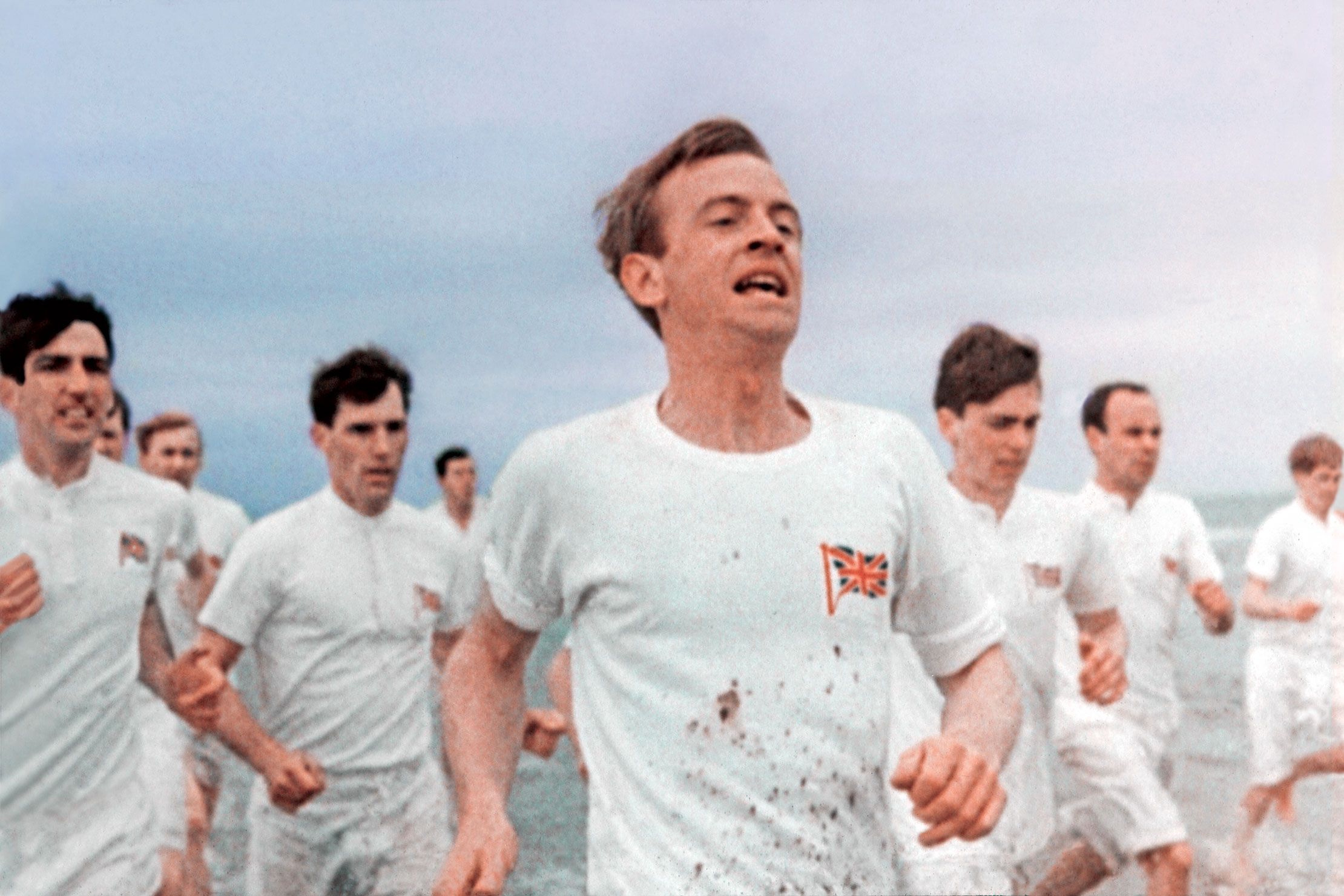
Some Best Picture Oscar winner selections are immediately recognized as mistakes by discerning viewers (American Beauty, Crash, Forrest Gump, Gladiator), others seem plausible contemporaneously but the bloom fades from their rose over time (Around the World in 80 Days, Dances with Wolves, Gigi). What a pleasure and a relief it is to revisit a Academy Award winner from 40 years ago and find that it hasn’t (ahem) lost a step: Chariots of Fire.
The plot: In the 1920s, two markedly different British men share a love of running and a desire to make a mark upon the world. Eric Liddell (Ian Charleson) is a devout Scottish Protestant who “feels God’s pleasure” when he runs whereas Harold Abrahams (Ben Cross) is an English Jew striving to be accepted by the Establishment. Both are seen as misfits in elite circles and struggle to balance their fierce athletic commitment with the rest of their lives and loves, yet both are talented, determined, and full of competitive fire. As opponents and teammates, they bring themselves and their nation to the pinnacle of tension and opportunity at the 1924 Olympics.

There are many ways to understand what Colin Welland’s skillfully crafted story is “really about”. Is this film about how sports can ennoble individuals and forge deep friendships? Is it about the changing nature of post-World War I Britain? Is it about how outsiders crave acceptance so strongly that they are driven to magnificent achievements? Is it about how young people find their purpose in life? Yes, yes, yes, and yes. This is a rare film that different viewers can appreciate — even be deeply moved by — for entirely different reasons.
Chariots of Fire is also a notable example of how even a little-known director can have at least one great movie in him. Hugh Hudson has been making documentaries and television commercials for years when he was tapped for Chariots of Fire, his first feature film. That doesn’t sound like a promising backstory, but Hudson proves a masterful storyteller, particularly in how he focuses more heavily on the human experience of athletes than on the races themselves (There is a limit to how intrigued most film goers can be by people running in a circle). Also to Hudson’s credit: There isn’t a bad performance or bad shot in the whole film.
The lead actors make a strong impression, as do the supporting players, including Ian Holm as Abrahams’ coach, Alice Krige as his lover, and Nigel Havers (who anchored another of my recommendations, The Charmer) and Nicholas Farrell as his Cambridge University friends and fellow athletes. The film is also famous for its innovative score by Vangelis…I am probably alone in not caring for it that much, but there is so much else to savor in this remarkable film that this in no way diminishes my admiration for Chariots of Fire.
The film takes some liberties with historical facts: Liddell’s refusal to run heats on Sundays did not create a last-second crisis for the British team at the Olympics because he had months of advance notice in which to prepare for a different event, and Abrahams’ family finding the Establishment impenetrable is hard to square with both of his brothers being knighted in real life. But the film isn’t a documentary, it’s a drama based on real events, and every scene is utterly true in psychological and emotional terms. Sometimes Oscar gets things exactly right.
